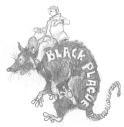Death and Plague New Orleans What Storm Will Hit Next ?

Click Here for More on Katrina
As I’m sitting here, the only light I can see is the light of my laptop illuminating my fingers. My cell phone would light up if people could call in. Only rarely does that work, no one has left voicemail but when they do get through they tell me they’ve rung for hours, upwards of two dozen times.
We didn’t have to pass through a single check point to enter the city, we simply went around them. There was much debate about the amount of danger we would be in by coming here and so far I feel pretty safe. We didn’t bring a gun, partly because we didn’t want to believe it would be so bad that we would need one and because it was probably impossible to get one at such short notice. I don’t think that was a mistake, we don’t need firearms. I do find it pretty surprising that the American government has recently hired Blackwater security forces to patrol the streets here. At the same time they’re removing firearms from citizens who rightfully feel they need them. It’s a strange future we’re living in and have no doubt about it, we’re living in the future. It’s too bad that we’re living in that other future, the dystopian one. The one with terrorists, murderers, corruption at the highest government levels, global wars and a world with an environment being destroyed by serious pollution. A world where people are now literately drowning in it.
NOLA PROJECTS - Sunrise Project

CLICK HERE FOR THE FULL TEXT
West St. Louis Virus' and USDA Biosafety Issues
The skyrocketing biodefense budget, now exceeding that of the Manhattan Project (adjusted for inflation), is rapidly increasing research on biological weapons agents, including risky genetic engineering projects. Despite this and the increasingly evident chronic, institutionalized problems with institutional biosafety committees (IBCs) across the country, the Bush administration maintains that comprehensive laboratory safety and disclosure law is unnecessary. It says that an alleged "culture of responsibility" among IBCs will protect Americans, and the world, from its biodefense research.
This summer, fear of the West Nile Virus (WNV) epidemic grips much of the northern hemisphere. This week WNV was confirmed in Portugal. The virus has recently been confirmed in Siberia, and it continues to establish itself in many areas of the United States.
A team of US Department of Agriculture (USDA) scientists is taking a dubious approach to combating the problem. At the University of Wyoming, USDA researchers are trying to create new, pathogenic types of WNV that could prove to be worse than the naturally occurring virus. USDA is doing this by crossing West Nile with St. Louis Encephalitis (SLE), a related flavivirus that is endemic to the US but that presently infects far fewer people each year. (1)
The two viruses are not known to naturally cross, and a prior study done elsewhere suggested that the possibility is not high. Rationalizing that it still might happen, however, the USDA researchers are forcing the issue by forcing WNV and SLE to recombine. The researchers will isolate lab-created WNV-SLE hybrids ("West St. Louis Virus") and then plan to infect mosquitoes, birds, and lab mice with the engineered viruses. They then plan to study the results, characterizing the pathogenicity and host range of the novel viruses. They will also develop a diagnostic test to detect the bugs which, insofar has been established by research, will only exist in the lab in Wyoming.
USDA is performing this research at the University of Wyoming because BSL-3 animal facilities at its own lab in Laramie, the Arthropod-Borne Animal Diseases Research Laboratory (ABADRL), were closed for emergency repairs in 2003.
USDA is thus deliberately making novel, lethal viruses with epidemic potential for humans (and animals). Its specific intent is to create, isolate, culture, characterize, and study transmission of a new and deadly disease. USDA is doing this at a university lab because its own facilities are broken. Not only will a containment failure in these experiments pose a serious public health threat; but also there is limited scientific justification for experiments, and they raise questions about the US biodefense program and the Biological Weapons Convention. What if other countries start government programs to create designer disease citing similar rationales?
When weighed against the risks that the experiments generate, there is ample room to question whether 'West St. Louis Virus' should be created at all. Certainly, this USDA project, like a number of other biodefense experiments to deliberates create disease, such as reconstituted 1918 "Spanish" influenza, present public, policy, arms control, and scientific issues that deserve extremely careful review before the project is conducted (or discarded as unnecessary, unsafe, unwise, or unlawful).